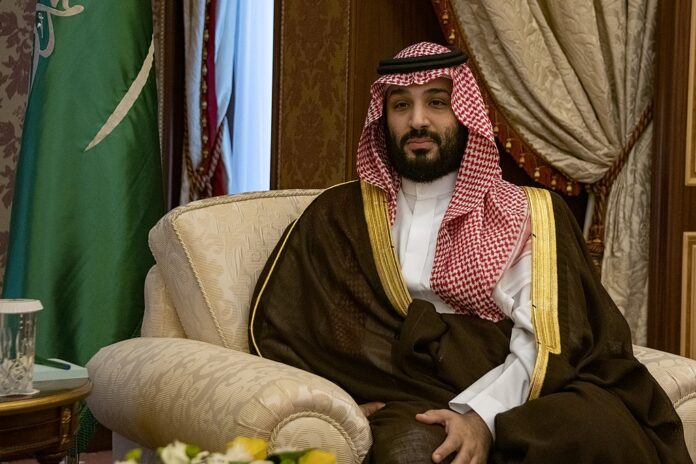Saudi Arabia’s economic diversification, tourism boom, and record-low unemployment are central to Vision 2030’s achievements, as highlighted by Crown Prince Mohammed bin Salman in the Shoura Council.
Saudi Arabia’s Crown Prince Mohammed bin Salman delivered an optimistic update on the Kingdom’s Vision 2030 initiative during the annual royal address at the opening of the first year of the ninth session of the Shoura Council. The crown prince highlighted several major milestones achieved under the ambitious program, which aims to diversify the Saudi economy away from oil dependency and promote a sustainable future.
Among the key achievements, the crown prince pointed to the rapid growth in the tourism sector. Initially, Vision 2030 set a target of attracting 100 million tourists by 2030, a goal that was surpassed in 2023 with 109 million visitors. As a result, the Kingdom has raised its ambitions to welcome 150 million tourists by 2030. This expansion in tourism plays a crucial role in diversifying Saudi Arabia’s economy and promoting cultural exchange.
Embed from Getty ImagesEmployment was another area of success highlighted by the crown prince. Saudi unemployment rates, which stood at 12.8 percent in 2017, have dropped to a historic low of 7.6 per cent in the first quarter of 2024. This reflects significant progress in job creation for both men and women in the Kingdom, reinforcing the social reforms and economic strategies that underpin Vision 2030.
The crown prince also emphasized the role of the Public Investment Fund (PIF), which continues to be a driving force behind Saudi Arabia’s investment agenda. Through strategic investments and initiatives, the PIF has contributed to the country’s growing prominence on the global stage, both as a business hub and a destination for cultural and sporting events.
Moreover, housing reforms have led to an increase in homeownership among Saudi nationals, with the percentage rising from 47 per cent in 2016 to over 63 per cent. This is part of the broader strategy to improve living standards and promote social well-being.
Saudi Arabia’s strides in renewable energy were also acknowledged, with the crown prince noting the Kingdom’s emergence as a leading player in this sector regionally and internationally. In addition, the country is now recognized as one of the largest repositories of natural resources globally, positioning Saudi Arabia as a future hub for mining activities.
Looking ahead, Saudi Arabia is preparing to host major global events such as Expo 2030 and the FIFA World Cup 2034, further enhancing its global standing. The crown prince concluded by stating that Saudi Arabia’s global reputation and confidence have grown, with international organizations and companies choosing the Kingdom as a regional hub for sports, culture, and investment.
Analysis:
The Vision 2030 initiative marks a pivotal transformation in Saudi Arabia’s economic and social landscape. As outlined by Crown Prince Mohammed bin Salman, the achievements thus far represent significant strides in reducing the Kingdom’s reliance on oil revenues and fostering a diversified, knowledge-based economy.
Economic Perspective:
Economically, the reduction in oil dependency is a central tenet of Vision 2030. The diversification of revenue sources—through tourism, mining, and other non-oil sectors—has created a more resilient and adaptable economy. The rise in non-oil activities contributing 50 per cent to the real GDP is a clear indicator of progress. The tourism sector, in particular, has been a bright spot, exceeding initial expectations with 109 million visitors by 2023. This sector not only provides a critical influx of foreign currency but also stimulates job creation and infrastructure development.
Moreover, the sharp reduction in unemployment, down to 7.6 per cent, signals that the Kingdom’s economic reforms are successfully translating into job creation, especially for Saudi citizens. This achievement reflects the success of key government policies aimed at supporting private sector growth, enhancing education and training programs, and encouraging entrepreneurship.
The Public Investment Fund’s role as a driving force for investments also highlights the strategic direction of Saudi Arabia’s economy. With its focus on long-term investments in technology, renewable energy, and real estate, the PIF is helping to diversify the Kingdom’s portfolio and position it as a leading player in the global economy.
Social Perspective:
From a social perspective, Vision 2030 is contributing to significant improvements in living standards. The increase in homeownership from 47 per cent to over 63 per cent is a testament to the government’s efforts to make housing more accessible and affordable for citizens. This aligns with broader reforms aimed at improving quality of life, promoting social stability, and enhancing citizen well-being.
Additionally, the significant drop in unemployment highlights the success of policies aimed at integrating more Saudis into the workforce, particularly women. Increased female participation in the workforce is a cornerstone of the social reforms introduced under Vision 2030, contributing to the country’s overall economic dynamism.
Political and Global Implications:
Politically, Saudi Arabia’s Vision 2030 strengthens the Kingdom’s role on the global stage. The country’s ability to host large-scale international events such as Expo 2030 and the FIFA World Cup 2034 solidifies its status as a global destination for tourism, investment, and cultural exchange. This increased international visibility also reflects Saudi Arabia’s growing geopolitical influence.
Saudi Arabia’s leadership in renewable energy is another important aspect of Vision 2030. As the world transitions to greener energy sources, the Kingdom’s investments in solar and wind energy help ensure its relevance in a post-oil world. This leadership role in the energy transition enhances Saudi Arabia’s standing in international forums on sustainability and climate change
